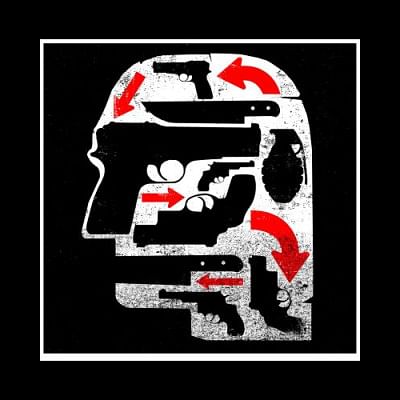Gang culture stems from poor social environment, not external influences

Does a teenager become a violent member of a gang just by following 'western' culture and using the internet? Do teenagers form gangs by playing Clash of Clans on mobile phones? Is gang culture a new phenomenon in Dhaka or Bangladesh?
Reports in various newspapers following the brutal murder of 14-year-old Adnan Kabir in Uttara in early January raised these questions. There are a dozen graffiti-wielding and bike- riding violent gangs in Uttara. The reports say these gangs beat up people and their opponents to let them know who was in charge. Their main motivation, according to the reports, is to establish domination in the area. The gangs use social media to threaten each other's groups or their targets and so on.
These reports also quoted various persons saying that these teenagers had become gang members under the leadership of petty local young criminals and also under the influence of external influences and the internet.
Is that a fact?
That the teenage years are a problematic period is obvious due to the presence of the Juvenile Correction Centre in Tongi.
Gang culture has been there for a long time in Dhaka. But in the past, the number of gangs was small. Their activities were befitting with their times. There was no social media till a decade back. So they used to threaten each other via phones or in person.
From the sixties up to the eighties, we have witnessed or heard of gang fights. It was typical for gangs to use hockey sticks, machetes and knives. Some gang members later became hard-boiled criminals, others returned to 'normal' lives.
We have had gangs at the bottom-tier of the society all along. Street kids who buy and sell drugs and get involved with all sorts of lower level crimes ran various gangs. But they remain under-reported.
Gang culture has always been about domination; about gang members becoming 'respected'. The gang members we knew in our childhood in the early eighties were poor students and had low self-esteem. By becoming a gang member or gang leader they could become 'someone' others feared.
But then again not all poor students with low self-esteem were gang members. The actual reason why some teens chose to become a gang member is psychological and it is due to the social conditions surrounding them.
Teenagers are the most ignored or misunderstood generation in our society. And yet, as natural hormonal changes kick in between the ages of 13-14, every human being undergoes rapid psychological changes that he/she really does not understand properly.
In general, the teenage years are the most vulnerable period for any human being due to various psychological disorders, depression, violence and all that. This is also the age of experiencing a great deal of new emotions, intellectuality and creativity. They become somewhat distant from their parents suddenly as their friends become more important in their lives.
In most cases, we survive this phase without much trouble. For some, it may be very difficult if they do not find their surrounding supportive. It is possible to channel their emotional and hormonal changes to good use. But someone like a guardian or a friend has to stand by the side of that teen. Otherwise, that teenager may become a gang member or any other unwanted thing.
The juvenile who is undergoing hormonal transformation may become too sensitive about his or her status in the world he/she lives in. If he/she is feeling too small, rejected and underpowered, he/she may find refuge in a gang with a fake sense of becoming 'respected'.
They can alternatively become a deadly militant—as we have seen in recent times.
Our state and our city do not offer proper platforms for teenagers or children.
It is a country that thinks of nobody but the adult men. Why does it surprise us when we see teen gangs killing teens or, a teen militant fighting the cops thinking he was serving a divine cause?
If we want to contain such destructive trends, stop blaming 'western culture' or the internet. Instead offer these kids an environment of hope, joy and inspiration. Give them playing fields in every community. Give them cultural platforms to practice various forms of creativity. Give them platforms that are so attractive that even a teen from a troubled family would try to find happiness there. Until then, expect more teens to go down the drain.
The writer is Deputy Editor, The Daily Star.

 For all latest news, follow The Daily Star's Google News channel.
For all latest news, follow The Daily Star's Google News channel. 



Comments